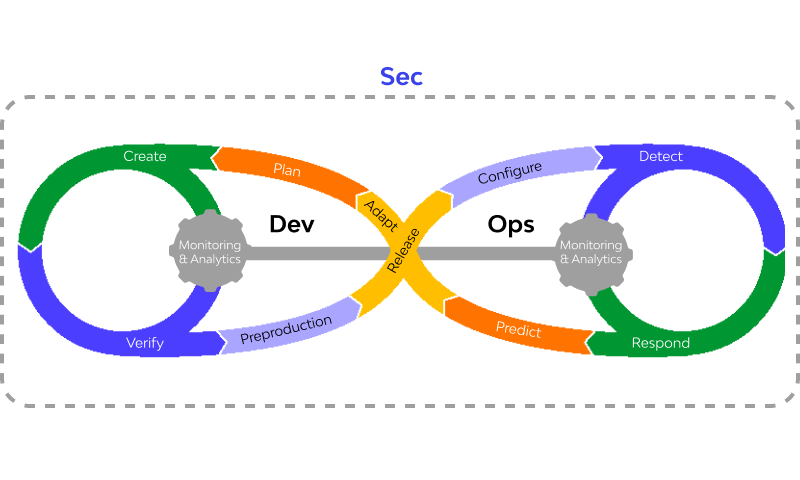The DevOps methodology has emerged as a powerful approach to software development and operations. By promoting collaboration between development and IT operations, DevOps accelerates software delivery and enhances system reliability. However, as organizations embrace this agile framework, the question of security becomes paramount. The integration of security practices into the DevOps workflow—often referred to as DevSecOps—ensures that security is not an afterthought but a core component of the development process. Let’s explore why embedding security practices into DevOps is crucial and how organizations can effectively implement these strategies.
Understanding the Need for Security in DevOps
As businesses increasingly rely on technology, the risks associated with cyber threats have grown exponentially. Data breaches, malware attacks, and other security incidents can lead to significant financial loss and reputational damage. The traditional approach to security—addressing vulnerabilities only after the development phase—can no longer keep pace with the rapid deployment cycles of modern software. This is where integrating security into the DevOps workflow becomes essential.
By embedding security practices from the outset, organizations can proactively identify and mitigate risks, ensuring that security measures evolve alongside their applications. This shift not only enhances security posture but also fosters a culture of shared responsibility among all team members, creating a more resilient development environment.
Key Strategies for Integrating Security into DevOps
1. Shift Left: Prioritizing Security Early
One of the foundational principles of DevSecOps is the “shift left” approach. This strategy encourages teams to integrate security measures as early as possible in the software development lifecycle (SDLC). By involving security professionals during the initial design and development phases, potential vulnerabilities can be identified and addressed before they escalate into significant issues.
Early security assessments, threat modeling, and secure coding practices should be prioritized in the initial stages. This proactive approach not only reduces the cost and effort of fixing vulnerabilities later in the process but also instills a security mindset among developers.
2. Automate Security Testing
Automation plays a crucial role in the success of DevOps, and it can significantly enhance security efforts as well. By incorporating automated security testing tools into the CI/CD (Continuous Integration/Continuous Deployment) pipeline, organizations can quickly and efficiently identify vulnerabilities throughout the development process.
Static application security testing (SAST) and dynamic application security testing (DAST) tools can be integrated into the pipeline, allowing for real-time analysis of code and applications. Automating these security checks ensures that vulnerabilities are detected early, enabling teams to address them before deployment.
3. Foster Collaboration Between Teams
Successful DevSecOps implementation hinges on effective collaboration between development, operations, and security teams. Traditionally, these groups have operated in silos, leading to communication gaps and misunderstandings. By fostering a culture of collaboration, organizations can break down these barriers and create a unified approach to security.
Regular cross-functional meetings, workshops, and training sessions can facilitate knowledge sharing and ensure that all team members understand the importance of security practices. Encouraging a culture of open dialogue promotes accountability and empowers every team member to contribute to security efforts.
4. Continuous Monitoring and Feedback
Security is not a one-time effort; it requires ongoing vigilance. Implementing continuous monitoring practices allows organizations to detect security incidents in real time and respond quickly. By leveraging tools that provide visibility into application behavior and network traffic, teams can identify anomalies that may indicate a security breach.
Additionally, incorporating feedback loops into the DevOps workflow is crucial for continuous improvement. Regularly reviewing security incidents, vulnerabilities, and testing results helps teams learn from past mistakes and refine their processes. This iterative approach ensures that security practices evolve alongside the organization’s changing needs.
Embracing a Security Culture
Creating a robust security posture within a DevOps framework extends beyond tools and practices; it involves cultivating a security-first mindset across the organization. Leaders play a pivotal role in establishing this culture by emphasizing the importance of security at all levels.
Training and awareness programs can help team members recognize potential security risks and understand their roles in mitigating them. By making security a shared responsibility, organizations empower their workforce to take ownership of security practices, fostering a proactive approach to safeguarding digital assets.
A Secure Future with DevSecOps
As the landscape of software development continues to evolve, the importance of security in the DevOps workflow cannot be overstated. By embedding security practices early, automating testing, fostering collaboration, and embracing a culture of continuous improvement, organizations can build resilient applications that stand strong against evolving cyber threats.
Incorporating security into the DevOps framework not only enhances the security posture but also contributes to faster, more efficient development cycles. With a commitment to integrating security practices, businesses can navigate the challenges of the digital age with confidence, ensuring a secure future for their applications and users. Embracing DevSecOps is not just a trend; it’s a necessity for organizations looking to thrive in an increasingly complex digital environment.

